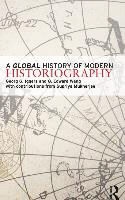Read more
List of contents
Preface and acknowledgements. Introduction. Part I: Historiographical traditions in the world: A view of the eighteenth century. Part II: The advance of nationalism and nationalist history: The West, the Middle East and India in the nineteenth century. Part III: Academic history and the shaping of historical profession: Transforming historical study in the nineteenth–century West and East Asia. Part IV: Historical writings in the shadow of two world wars: The crisis of historicism and modern historiography. Part V: The appeal of nationalist history around the world: Historical studies in the Middle East and Asia in the twentieth century.
Part VI: New challenges in the post-war period: from social history to postmodernism and postcolonialism.
Glossary. Further reading. Index.
About the author
Georg Iggers is a distinguished professor emeritus at University at Buffalo (State University of New York). From 1995 - 2000 he was president of the International Commission for the History and Theory of Historiography. Having fled the Nazis as a child, he has been active in the Civil Rights movement in the US.
Q. Edward Wang is professor of the History Department at Rowan University in Glassboro New Jersey and secretary general of the International Commission for the History and Theory of Historiography.
Supriya Mukherjee teaches at the University of Memphis.
Summary
So far histories of historiography have concentrated almost exclusively on the West. This is the first book to offer a history of modern historiography from a global perspective.
Tracing the transformation of historical writings over the past two and half centuries, the book portrays the transformation of historical writings under the effect of professionalization, which served as a model not only for Western but also for much of non-Western historical studies. At the same time it critically examines the reactions in post-modern and post-colonial thought to established conceptions of scientific historiography.
A main theme of the book is how historians in the non-Western world not only adopted or adapted Western ideas, but also explored different approaches rooted in their own cultures.
Additional text
“It is no longer adequate to tell the story of the history of historical writing as if it were exclusively the creation of the west. This new book is an excellent contribution towards globalizing our understanding of the development of modern historical writing.”
Dr Daniel Woolf, University of Alberta, Canada
"Encyclopaedic in scope and erudition, non-partisan in approach but interested in forging connections across national contexts, this book will do much to enliven and inform contemporary debates in historiography. It represents a truly impressive scholarly achievement."
Dr Dipesh Chakrabarty, University of Chicago, USA

